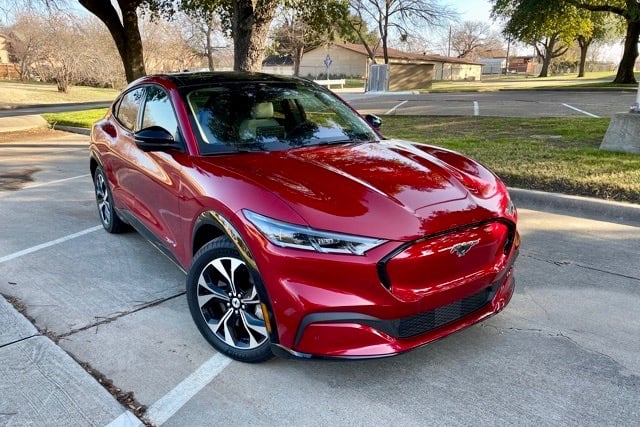Considering an electric vehicle? More and more Americans are, as they become more widely available, more affordable and offer more battery range. Case in point, a recent study for Forbes Wheels found that nearly 23% of Americans would considering buying a new or used EV as their next vehicle. Also, a new KPMG study finds that auto execs expect more than half of their U.S. sales (52%) will be all-electric vehicles by 2030. And consider this, as of the third quarter, U.S. sales of electrified vehicles (all-electric and hybrids) surpassed one million.
BBB: Electric Vehicle Buying Tips
As interest in EVs grows, the Better Business Bureau is joining in the conversation. In a press release, the BBB says EVs are not only great for the environment, they also require less maintenance. That said, the BBB says there are several factors to consider when deciding whether an EV is right for you and recently shared a list of must-do's when shopping for an all-electric vehicle.
.1. Consider your driving needs.
Most of today’s electric vehicles (EVs) can travel over 200 miles on a single charge. That’s more than enough range to cover most people’s daily commute. However, if you drive hundreds of miles each day, an electric car may not be a practical choice for you. You can take EVs on longer road trips, but keep in mind that you’ll need to plan out charging stops, which will add some time to a long-distance journey.
2. Create a budget.
As with any major purchase, you should examine your budget and make sure you can afford an electric vehicle beforehand. That means figuring out how much you can spend on a monthly payment and not just spending the maximum amount on any loan you qualify for. Keep in mind that while EVs have lower maintenance costs, base prices start around $30,000 and can run into six figures for higher end models.
3. Factor insurance into your budget.
Because they cost more than gas-powered cars, insurance is typically more expensive for EVs. Consumers usually pay more than 20% more to insure electric cars, so be sure to factor that expense into your budget.
4. Search for incentives.
Although the initial cost of an EV can seem intimidating, special incentives can bring the price down to a more reasonable range. For example, all-electric and even plug-in hybrid cars purchased new may be eligible for a federal tax credit of up to $7,500. In addition, cash incentives may be available from your state, province and/or local governments and even your electric company. There are other incentives to consider as well, such as free parking, access to carpool lanes, and free charging stations.
5. Have a plan for charging.
Speaking of charging stations, you’ll need to think about how to charge your electric vehicle before you make the switch. Most people charge electric cars at home at the end of the day. Standard 110-volt wall outlets can do Level 1 charging for EVs, but that only adds about 4 miles of range per hour. For faster charging, you may need to hire an electrician to install a 240-volt outlet for Level 2 charging in your garage. Level 2 charging adds about 25 miles of range per hour. Factor any home upgrades you’ll need to make and the electricity you’ll use to charge your car into your budget. Keep in mind too that not all public charging stations are free. If you plan to use public charging stations at the office or somewhere else, investigate the cost ahead of time.
6. Think about alternatives.
If you’re still on the fence about buying an all-electric car, you could consider leasing one. Your monthly payments will be lower and you’ll find out if you like EVs enough to purchase one. Plug-in hybrids are another option for consumers who want to try out electric without making a complete switch. Another alternative is to buy a used EV at a lower price. If you do, keep in mind that with rapidly evolving technology, EVs can become outdated in just a few years. In addition, some EV batteries lose their ability to charge after a few years. This doesn’t mean buying a used EV is always a bad idea, but it does mean you should do thorough research before you close the deal.
Have more questions about EV's? For more information about charging, range and other considerations, check out our Car Pro 2021 Guide to EV's.
Photo: Ford Mustang Mach-E.
